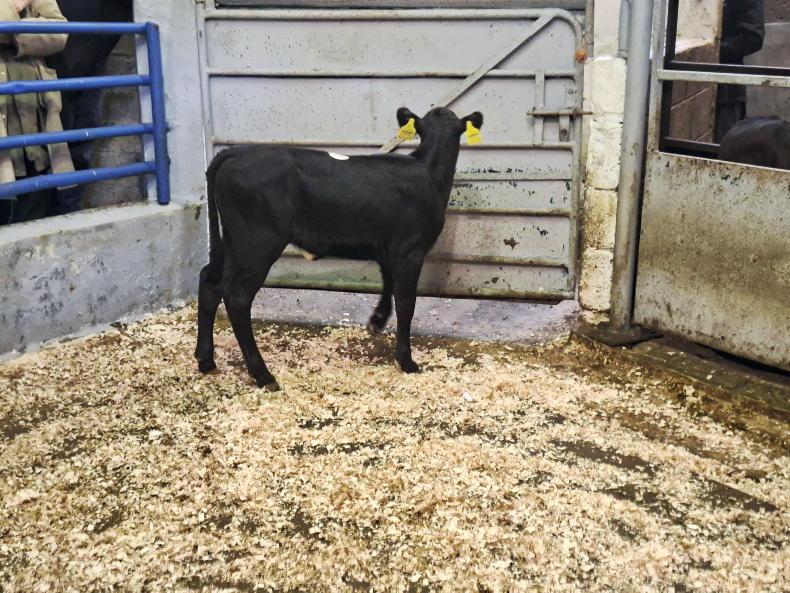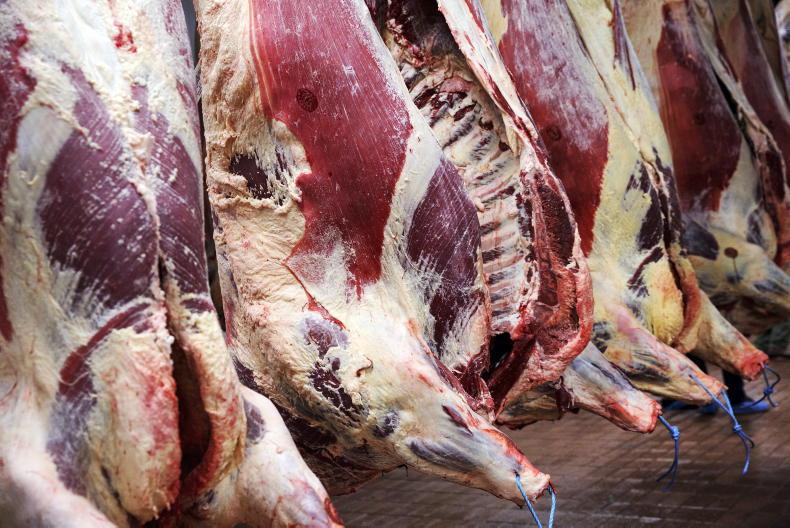It’s official. The countdown to the UK leaving the European Union is under way. While still difficult, we need to assess what it means for agriculture on the island of Ireland. The best-case scenario is a comprehensive free trade agreement (FTA) that maintains the status quo from a market perspective. If this was to happen, then it would be business as normal across the island of Ireland, provided of course that the UK remained part of the customs union.
This scenario for agriculture is dependent on the UK and EU quickly putting such an FTA in place to follow the withdrawal by the UK from the EU in March 2019. This departure date could be extended by the remaining 27 countries each agreeing to an extension or the negotiations could arrive at a transitional arrangement which would retain the current position pending the completion of a FTA which may take several years.
If the best-case scenario is the outcome, there will be no significant implications for agricultural markets. However, for Northern Ireland (NI) farmers, there will be the issue of payments to replace the CAP system which has provided direct and indirect farm support since the UK and Ireland joined the EU. There are conflicting views in Britain as to what shape a future agricultural support mechanism will take. NI farmers will hope farm minister George Eustice stays true to his commitment before the referendum that the UK would have no problem replacing CAP payments from the savings made on the UK contribution to the EU. However, the issue is whether there will be a direct payment or an environment-based scheme. Negotiations haven’t properly started on this.
Is no deal better than a bad deal?
The UK prime minister, Theresa May, has said she won’t sign up to just any deal as “no deal is better than a bad deal” for the UK.
For Irish exporters, no deal is the worst-case scenario. It is similar for NI farmers who are exposed to exports, both in finished product and raw material, as is the case with milk and sheep flows across the border for processing. Live cattle exports to NI from the Republic of Ireland have been greatly reduced by labelling, but still accounted for 24,531 last year while 414,000 pigs went north for processing in 2016, a drop of 20% on 2015.
A no-deal scenario would lead to WTO tariffs, and serious implications for all sectors of agriculture, but within this some sectors will more severely affected.
Beef
If WTO tariffs apply post-Brexit, it would be devastating for the Irish beef industry with a 12.8% tariff imposed on value plus €3.03/kg on weight. On the 270,000t of beef worth €2.4bn sold to the UK from Ireland in 2016, this would add a cost of about €1.3bn. It is impossible to envisage how the market could carry this. An alternative scenario might see the UK reduce or eliminate its import tariff unilaterally. This would create another problem as the UK could not just decide to make this available to some countries and not others. Therefore, Brazil, also a WTO member, would get access to the UK at whatever rate it decided to give the EU.
NI would retain the brand benefit of the Red Tractor but for the 20% of its beef that it is exported, primarily to the EU, it would have little prospect of anything other than WTO tariffs without a FTA.
The other great issue for NI and ROI farmers is just how serious the UK prime minister is in pursuing trade deals with Brazil, Australia, New Zealand and the US. If these were to happen, it would mean the UK was outside the customs union and its market would be filled with cheap imported beef, displacing Irish product and reducing the value of the domestic Red Tractor product.
Dairy
The Irish dairy industry is well diversified, with sales to all of the major world economies. However, for one category the exposure to the UK is dramatic – cheddar. Half of Irish cheddar was sold in the UK last year which was down over 10% on 2015 because of currency. In a WTO scenario, €180m would be added to the cost of Irish cheddar exports to Britain. This would make the business unsustainable. For NI farmers, the big issue is what to do with the 30% of its milk pool that comes across the border for processing. It would be possible to expand production capacity in NI, but the issue of selling the product would remain, while ROI processing capacity would be left idle without NI milk.
Pigmeat
Pigmeat has well-diversified markets outside the EU, with China the second-highest volume market for Ireland. However, NI missed out when the UK secured approval to supply China and would be left dependent on the UK post-Brexit in a WTO arrangement. For ROI farmers, the NI processing industry is a big customer, particularly the Karro factory in Cookstown which sourced 414,000 pigs in the south last year. This was 20% down on 2015, reflecting the weakening of sterling and weak pig market in the first half.
Sheep
With 13,000t of Ireland’s total exports of 49,000t going to the UK in 2016, it was Ireland’s second most important market after France. However, at just 26% of sales, sheepmeat is one of the less exposed categories.
For NI the picture would be particularly problematic. The UK is the third-largest exporter of sheepmeat in the world after Australia and New Zealand, with its main customer continental Europe, France in particular. On top of this, NI sends almost half its lambs (390,000hd last year) south for processing. In a WTO situation, the UK sheepmeat industry will be particularly vulnerable.
Poultry
Irish poultry exports in 2016 amounted to 95,000t worth €275m, of which €235m was sold in the UK. About €27.5m would be added to the cost of poultry sales to the UK under WTO tariffs.
Ireland would be hit hardest by tariffs in WTO scenario
The starting negotiating positions of the UK and EU are as follows. The UK wants out of the EU court jurisdiction, obligation to allow free movement of people and the flexibility to make its own trade deals.
The EU’s position is those that leave the union must not be rewarded, so the UK must be worse off outside the EU than if it had stayed.
These positions suggest a default to WTO arrangements is at least a serious possibility, however much we wish for a seamless free-trade deal.
Ireland’s big negotiation will be with its EU 27 colleagues. If the WTO scenario were to happen, the effect on Irish exports is totally disproportionate. Much has been made of the impact on the German car industry post-Brexit. Germany has the largest exposure to the UK market, accounting for 28% of all EU sales there.
Ireland has just 5% of total EU sales to the UK, primarily agricultural produce.
However, with just 5% of total trade, Ireland will pay 19.2% of all EU tariffs post-Brexit compared with Germany paying 17.7% of tariffs on its sales to the UK of 28%. This is because tariff rates are set at such high levels for beef and dairy produce, the core of Ireland’s trade with the UK.
Seven EU countries including Ireland will end up paying for over 83% of all the tariffs on sales to the UK, with the other 20 countries paying just 17%. On this basis we can conclude that Brexit will have little or no impact on 20 out of 27 of our colleagues.
NI is exposed to exports for 20% of beef sales, half of live lamb exports, between a quarter and a third of milk sales and future farm support policy.









SHARING OPTIONS